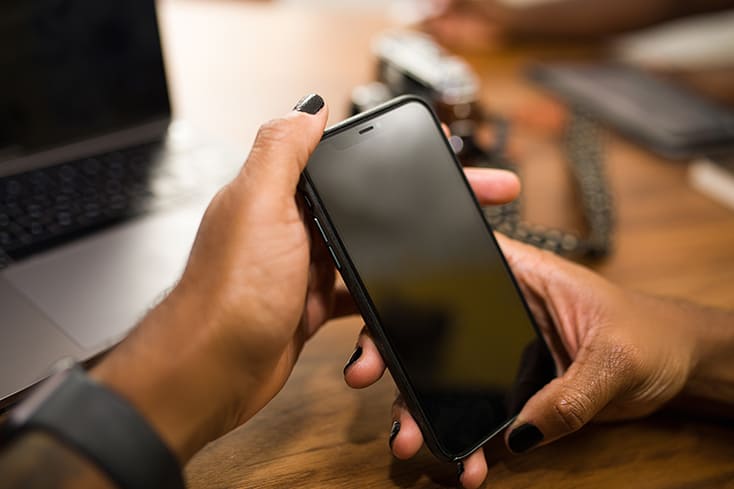November 15, 2021
By Daniel H. Gillison

People experiencing a mental health crisis deserve a mental health response. Unfortunately, community health systems often lack robust mental health crisis services. Too often, rather than encountering a trained mental health professional, people in crisis end up in the criminal justice system, on the street, waiting hours or even days in emergency rooms, in tragic encounters with law enforcement, or losing their lives to suicide.
We have an opportunity to change the status quo. In July 2022, a new, three-digit number for mental health emergencies — 988 — will go live nationwide. This easy-to-remember alternative to 911 is a critical first step. But on its own, it is just a number.
To truly ensure people in crisis receive the help they need, we must develop an entire 988 crisis response system.
What We Need
We need 24/7 local crisis call centers to meet the demand in every state with trained staff who can connect people to local services, dispatch mobile crisis teams and schedule follow-up appointments with local providers. We need mobile crisis teams with mental health professionals who can collaborate with law enforcement, de-escalate crisis situations and connect people to services available in every community. And we need trauma-informed crisis stabilization programs that can provide short-term observation and follow-up care that are accessible to anyone.
To achieve this, we need money to fund the training, staffing and facilities required for these critical services. We need legislation to provide that funding on the federal, state and local levels. And we need everyone to hold our policymakers accountable to enact this legislation.
How We Can Advocate
If we don’t act quickly, more people in crisis could face devastating outcomes. We must ensure that every person, regardless of where they live, receives the help they need when they call 988.
That’s why NAMI is hosting REIMAGINE: A Week of Action to Reimagine Our National Response to People in Crisis, Nov. 15–19, which will include virtual events and advocacy activities. It will take all of us to reimagine what crisis response can look like in this country. And it will take all of us working together to make that vision a reality.
Join us this week as we band together to raise awareness and fight for solutions we know work. We will be engaging with partners and holding events for advocates, policymakers and community leaders to learn more. Our sessions will cover topics like:
- Crisis Response and Racial Equity
- Supporting Youth and Young Adults in Crisis
- What Does an Ideal Crisis System Look Like?
- What Happens If We Don’t Act? A Discussion with Emergency First Responders
- Where Efforts to #ReimagineCrisis Response Are Today — and What’s Next
To help those of you leading efforts around 988 in your state, we are also covering topics that will support your advocacy efforts, like:
- 988 User Fees: What, Why and How
- Building and Expanding an Inclusive 988 Coalition
- Making Noise: Getting Media Coverage and Policymaker Attention of Crisis Advocacy
- Email, Digital and In-Person Strategies to Engage Your Advocates Around 988
- And more!
For more information, or to register for the week-long event, visit reimaginecrisis.org.
988 Resources:
- Reimagine Crisis Response Week of Action Website
- Promotional Email & Social Toolkit – Reimagine: 988 Week of Action
- 988 Crisis Response Info – NAMI
- Crisis Intervention Team Programs – NAMI
- State Fact Sheets – NAMI
- Report: Community Services that Enhance Criminal Justice System Diversion – NAMI
- Webinar: Mental Health Crisis Planning for Families – NAMI & SAMHSA
- Op-Ed: 988 Crisis Response: A Crisis in Peril – The Hill
 Daniel H. Gillison, Jr. is the chief executive officer of NAMI (National Alliance on Mental Illness). Prior to his work at NAMI, he served as executive director of the American Psychiatric Association Foundation (APAF) in addition to several other leadership roles at various large corporations such as Xerox, Nextel, and Sprint. He is passionate about making inclusive, culturally competent mental health resources available to all people, spending time with his family, and of course playing tennis. You can follow him on Twitter at @DanGillison.
Daniel H. Gillison, Jr. is the chief executive officer of NAMI (National Alliance on Mental Illness). Prior to his work at NAMI, he served as executive director of the American Psychiatric Association Foundation (APAF) in addition to several other leadership roles at various large corporations such as Xerox, Nextel, and Sprint. He is passionate about making inclusive, culturally competent mental health resources available to all people, spending time with his family, and of course playing tennis. You can follow him on Twitter at @DanGillison.
Submit To The NAMI Blog
We’re always accepting submissions to the NAMI Blog! We feature the latest research, stories of recovery, ways to end stigma and strategies for living well with mental illness. Most importantly: We feature your voices.
LEARN MORE